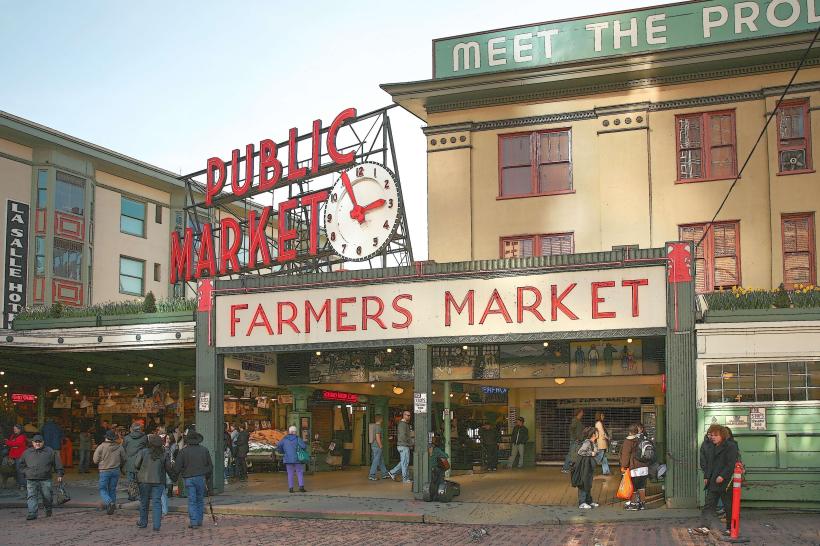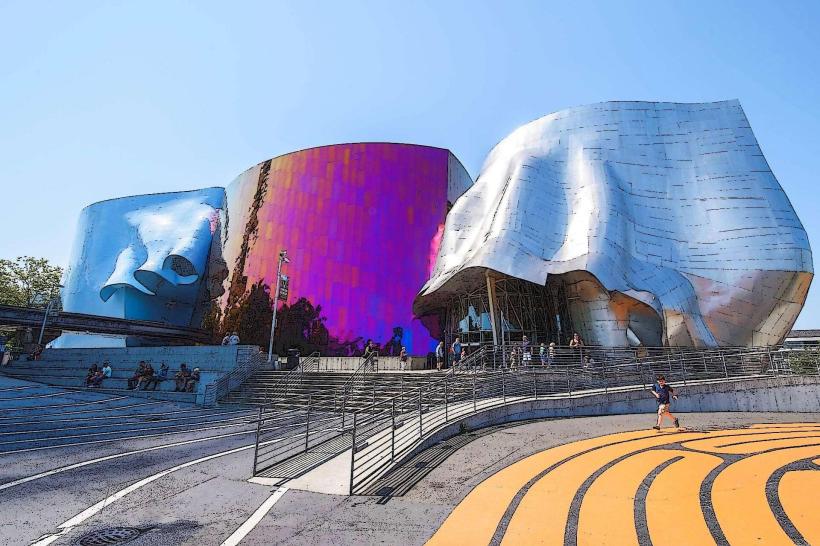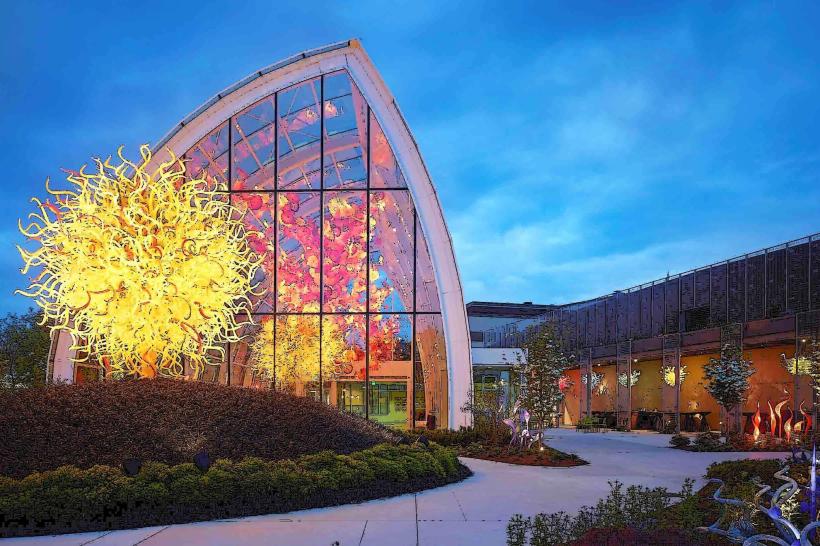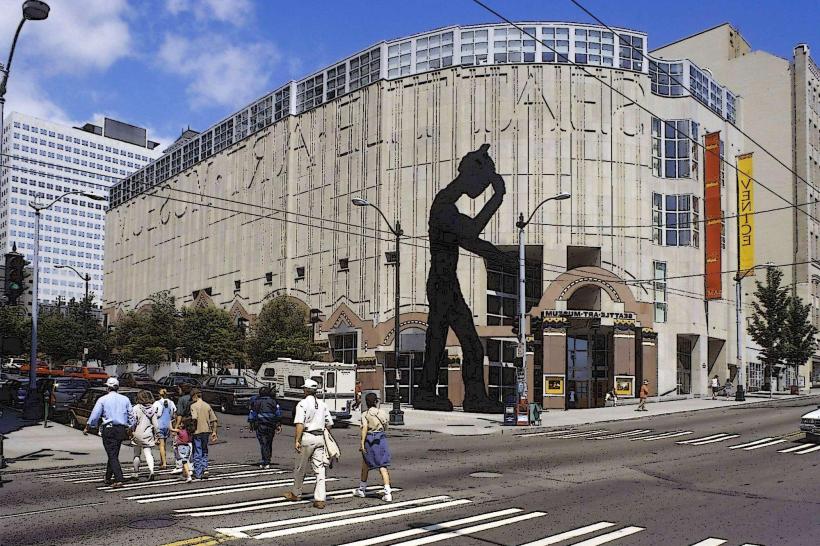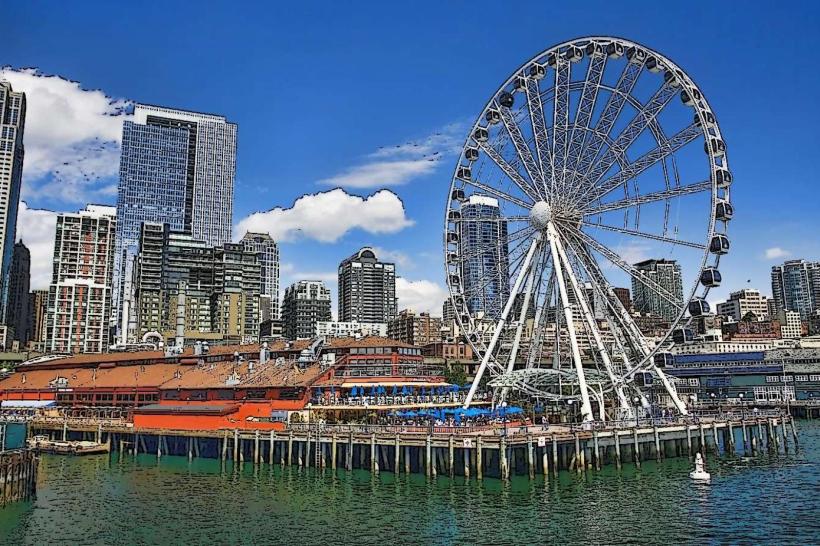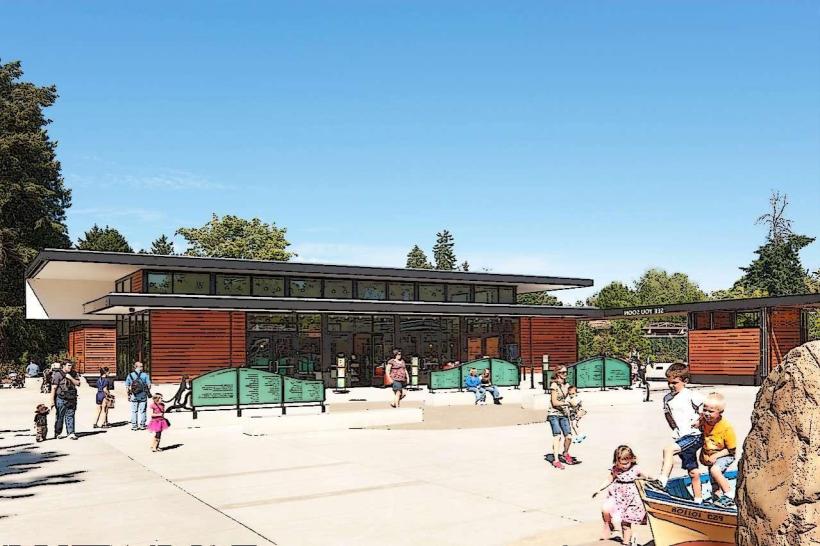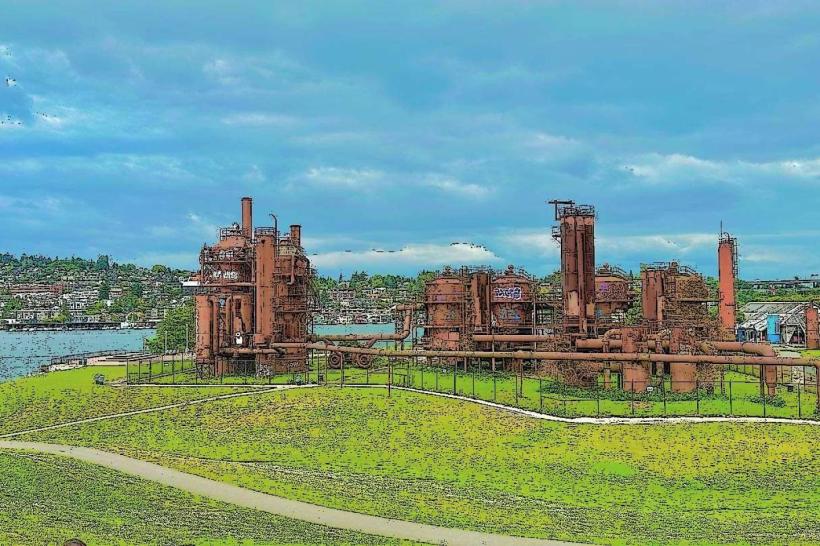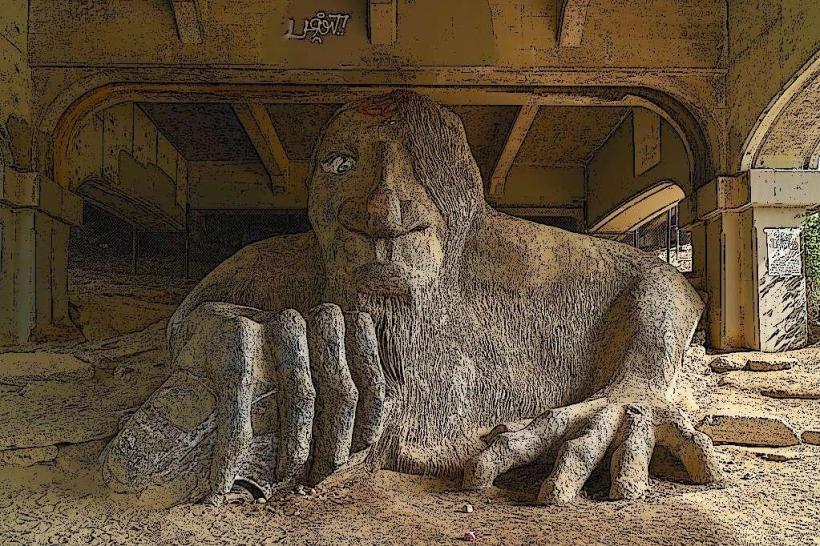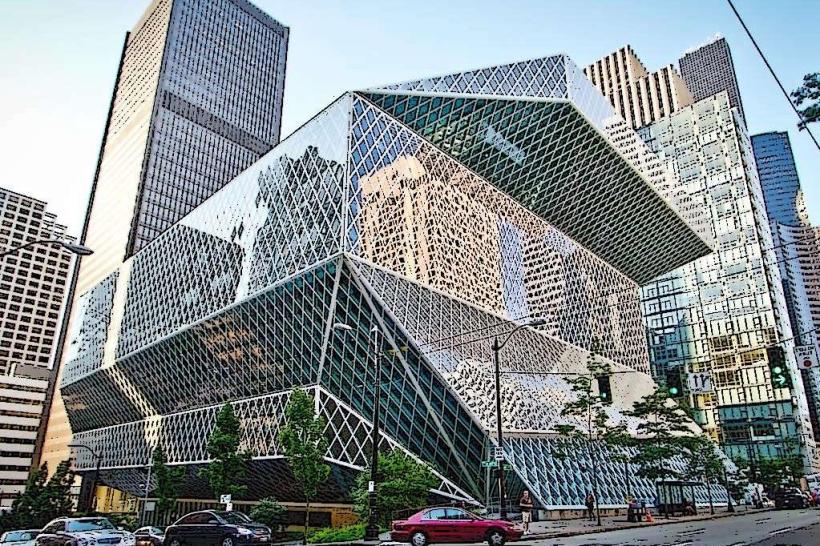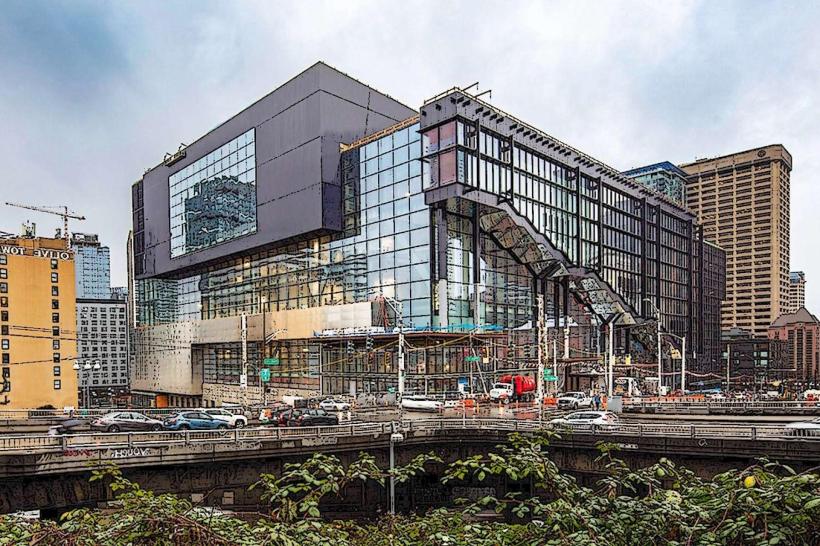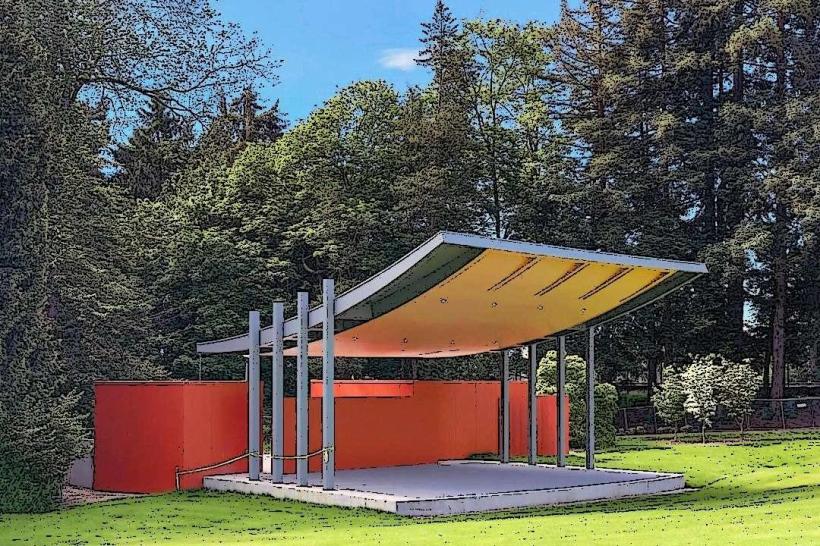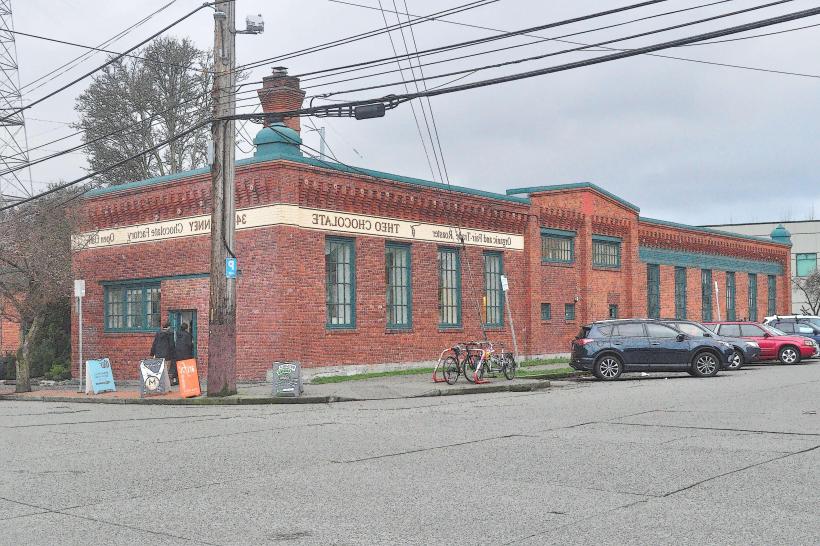Information
Landmark: Seattle AquariumCity: Seattle
Country: USA Washington
Continent: North America
Seattle Aquarium, Seattle, USA Washington, North America
The Seattle Aquarium is a leading marine science and education center located on the historic central waterfront of Seattle, Washington. It serves as a vital institution dedicated to marine conservation, public education, and fostering a deep appreciation for the rich aquatic ecosystems of the Pacific Northwest and beyond. The aquarium has grown and evolved over the years, culminating in the recent opening of the Ocean Pavilion, which greatly expands its capacity for immersive exhibits and interactive experiences.
Location and Architecture
Situated on Pier 59 at 1483 Alaskan Way along Elliott Bay, the Seattle Aquarium occupies a prominent spot in the Seattle waterfront area, offering picturesque views of the Puget Sound and the Olympic Mountains. The facility consists of multiple connected buildings, including the original Pier 59 structure, Pier 60, and the brand-new Ocean Pavilion, which opened in August 2024. The Ocean Pavilion represents a state-of-the-art, eco-friendly expansion designed with sustainability at its core, running 100% fossil fuel-free and incorporating innovative water and energy conservation systems along with a rooftop garden.
Exhibits and Displays
The aquarium’s exhibits are thoughtfully designed to provide visitors with an educational and engaging journey through marine environments, focusing both on local habitats and global marine biodiversity.
Ocean Pavilion
This newest addition to the Seattle Aquarium is a multi-story, immersive experience that showcases the rich biodiversity of the Coral Triangle-a marine area in the western Pacific Ocean known as the “Amazon of the seas” for its extraordinary variety of species.
The Reef: A massive panoramic tank housing over 3,500 marine animals, including Indo-Pacific leopard sharks, spotted eagle rays, and vibrant schools of tropical fish. The tank is designed to mimic a natural coral reef ecosystem, with intricate rock formations, coral structures, and dynamic lighting that recreates the underwater environment.
The Archipelago: A unique two-level exhibit displaying a mangrove forest on the upper floor and a coral reef below. This design emphasizes the ecological connection between coastal mangroves and coral reef habitats, illustrating how these environments support diverse marine life.
One Ocean Hall: This space uses 360-degree video projections and interactive displays to transport visitors to different ocean habitats around the world, highlighting the global interconnectedness of marine ecosystems and the importance of ocean conservation.
At Home in the Ocean: Smaller, intimate habitats allow close encounters with fascinating marine creatures like clownfish, seahorses, leaf scorpionfish, and other species often overlooked but critical to reef health.
Discovery Lab: A hands-on education space where visitors of all ages can participate in interactive activities, talks, and workshops led by aquarium educators and marine scientists. This area encourages active learning and fosters curiosity about marine biology and conservation.
Pier 59
Pier 59 is the main entrance and foundation of the aquarium’s historic exhibits focused largely on local Washington waters.
Window on Washington Waters: A massive 120,000-gallon tank simulating the coastal marine environment of Washington state. It is home to native species such as Chinook salmon, rockfish, lingcod, and various invertebrates, offering a comprehensive look at the region’s marine ecology.
Life on the Edge: A popular touch tank where visitors can gently interact with sea stars, sea urchins, and sea cucumbers, providing a tactile connection to tidepool creatures and coastal habitats.
Pacific Coral Reef: This exhibit recreates a coral reef environment with species like grunt sculpins and Pacific spiny lumpsuckers, highlighting the diversity of reef life even in temperate zones.
Salmon Life Cycle: A detailed exhibit illustrating the complex life stages of Pacific salmon, a keystone species for the region’s ecology, economy, and Indigenous cultures.
Veterinary Care Center: A behind-the-scenes area where visitors can observe veterinary care for marine animals, emphasizing the aquarium’s commitment to animal health and welfare.
Pier 60
Pier 60 focuses on marine mammals and broader educational outreach.
Marine Mammal Habitats: Enclosures for native sea otters and harbor seals allow visitors to observe these charismatic animals up close while learning about their behaviors, diets, and the challenges they face in the wild.
Underwater Dome: A 360-degree underwater viewing area offering immersive observation of marine animals, simulating the sensation of being beneath the water’s surface.
Outdoor Walkway: A scenic path providing stunning views of Elliott Bay and the Seattle skyline, enhancing the visitor experience with natural beauty alongside marine education.
Conservation and Research
The Seattle Aquarium is deeply engaged in conservation efforts focused on protecting and restoring marine ecosystems. It runs several species recovery programs, including initiatives for endangered species like the Indo-Pacific leopard shark and pinto abalone. The aquarium partners with local communities, Indigenous groups, scientists, and policymakers to promote sustainable fisheries, habitat restoration, and marine biodiversity protection.
Educational programs emphasize environmental stewardship and inspire visitors to take an active role in ocean conservation. Initiatives like the "Undersea Explorer" virtual reality experience and interactive digital exhibits enable guests to understand the impacts of human activity on marine life and the urgency of protecting ocean habitats.
Educational and Community Engagement
Moored firmly as an educational resource, the Seattle Aquarium offers daily talks, feeding demonstrations, and interactive sessions with educators and marine biologists. Special programs for school groups, families, and adults include:
Guided tours and workshops that integrate aquarium content with STEM education.
Summer camps and youth programs designed to inspire future marine scientists and conservationists.
Volunteer and internship opportunities that provide hands-on experience in animal care, education, and research.
Public events and citizen science initiatives that engage the community in monitoring and protecting local marine environments.
Visitor Experience and Amenities
The Seattle Aquarium is designed to be accessible and welcoming to all visitors. Facilities accommodate people with disabilities, with ramps, tactile exhibits, and sensory-friendly programs. The aquarium features a café and gift shop offering sustainably sourced products and educational materials.
Operating hours typically run daily from 9:30 AM to 6:00 PM, with the last entry about an hour before closing. Admission tickets can be purchased online or on-site, with options for individual, family, and membership passes that grant unlimited visits and special event access.
Overall Significance
The Seattle Aquarium stands as a vital cultural and scientific hub on Seattle’s waterfront, blending education, conservation, and public engagement in a unique and inspiring way. Through its comprehensive exhibits and innovative new Ocean Pavilion, it showcases the beauty and complexity of marine life while emphasizing the urgent need for ocean stewardship. It is a destination that educates and inspires visitors of all ages to appreciate and protect the delicate balance of life beneath the waves.



